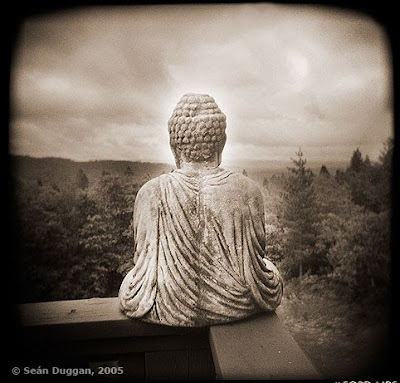The Juxtaposition between a Poet and an Acrobat: Uncertainty in "Constantly Risking Absurdity"
The poem "Constantly Risking Absurdity," by Lawrence Ferlinghetti, juxtaposes a poet and an acrobat. While the poem portrays the acrobat's daring performance through the lines which jump back and forth on the page, his slight fear is also depicted with the lack of punctuation, creating a slightly rushed and rambling dialogue. However, the actions of the acrobat clearly relate to the life of a poet.
Because the acrobat is "above the heads/of his audience," the poet is figuratively above their heads: in intelligence, or his speciality. Once again the audience is refered to, but in line ten, as only a "sea of faces." This lessens their significance, while still acknowledging their presence. The "audience" takes the place of critics for the poet. They make him slightly uneasy, but what makes him "pace" is the fact that he is so "high," or in other words, the poet is experimenting with difficult and slightly "absurd" ideas.
Time is referred to, when the acrobat "paces his way/to the other side of day." Concering the poet, "the other side of day" refers to aging. With age comes knowledge, and respect, therefore he does "tricks" and "theatrics" "all without mistaking." As a poet becomes older, the works he creates become acknolwedged and are held with higher esteem.
However, like an acrobat still high in the air, he must still be mindfull that the "charley chaplin man" below him "may or may not catch" him. In other words, a poet, no matter how well known or respected he is, must still be aware that the recepient of his knowledge is still below him, not exactly in the same mindset.
Therefore, Ferlinghetti allows the acrobat and poet to be very similar. Through their acceptance of their "audiences" and the "hight" of their being, they share similar fears. They both have practices and specialities which their critics could never do, but they are still at their mercy, no matter how well they perform.
I think that I would have received a 3 or 4 on this essay. For some reason Poetry and I just don't mix. Although I have an idea about what this poem is trying to portray, I probably took it too literally, and, putting that aside, this was just a terribly written essay. I was repetitive, and it is obvious that it was not planned very well. Next time, I need to create an actual plan before I just start writing.


